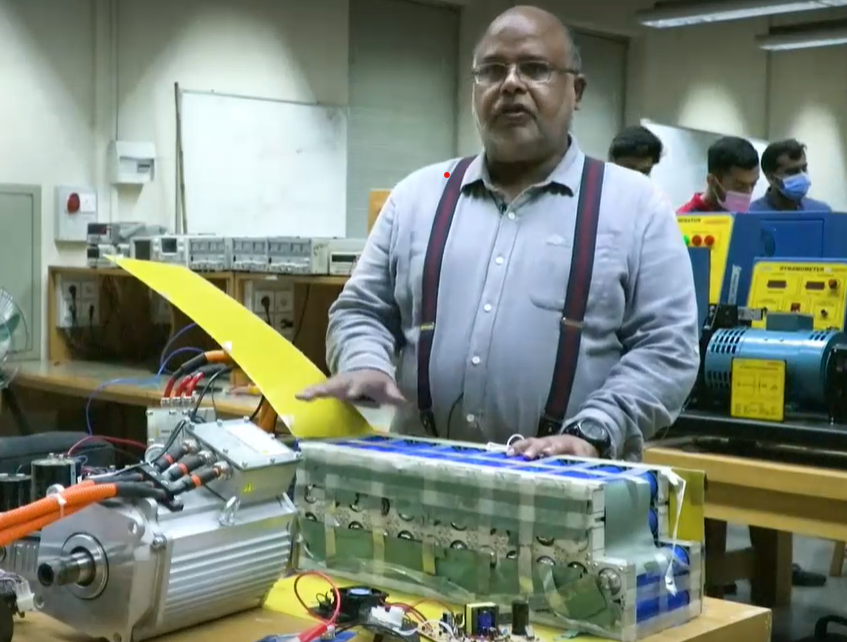INP-WealthPk
Naveed Ahmed
Lithium-ion batteries developed by researchers in Pakistan can provide an ideal solution for energy storage. Lithium-based batteries deliver superior performance compared to other alternatives, such as lead batteries. There are several unique advantages associated with lithium-ion batteries, including high energy density, low maintenance, longevity, and versatility.

Dr Mohammad Jahangir Ikram, Professor at Syed Babar Ali School of Science and Engineering, Lahore University of Management Sciences (LUMS), told WealthPK that Pakistan needs to phase out low-performance traditional batteries. “Currently, Pakistan has 2.8 million UPS systems. On average, their batteries require replacement every 12 to 18 months. The replacement of these batteries costs general people Rs200 billion annually. To overcome this issue, our team developed a lithium-ion battery that is lightweight, long-lasting, and economical,” he said.
He said lithium-ion battery consists of small cells containing a battery management system which supervises the voltage in cells. “Whenever a cell is overcharged, this system corrects it. A great deal of research went into the development of this system. It manages cell battery management and charging circuits according to the local requirements of the Pakistani electric system,” he said.
Prof Jahangir said that battery requirement for cell phones, UPS (uninterrupted power supply), solar systems, and vehicles is different. “In addition, batteries used in Pakistani devices have a very short life span compared to our prototype. As a result, we design a battery suitable for every device with slight modifications,” he explained.
He said replacing lithium-ion batteries with traditional batteries at the country level requires a lot of effort and financial assistance. He said this battery will be available soon on the market. He stressed that cost-effectiveness often depends on the application’s needs, and there are often more complex answers.
“Lead acid batteries require abundant space for functioning and are used for low-energy requirements applications. However, lithium-ion technology is a more favourable option when looking at the price in terms of power or range,” Prof Jahangir said. “For lead-acid batteries, the energy density is 50-90 watt-hours per litre. In contrast, lithium-ion batteries achieve 125-600+ watt-hours per litre. The lead acid battery would take up to 10 times the volume of the lithium-ion battery if one drives the same distance with each type of battery in a similar vehicle,” he added.
Consequently, lithium-ion batteries allow for greater payload capacity in electric vehicles and other electric devices, like buses with more passengers or delivery trucks with more packages. Moreover, lithium-ion batteries have a high energy density and afford a longer range, meaning the user does not need to charge as often when powered by lithium-ion technologies compared to other types of batteries.
Prof Jahangir said that charging a lead-acid battery can take more than 10 hours. In contrast, he said, lithium-ion batteries can take from three hours to as little as a few minutes to charge, depending on the size of the battery. He said lithium-ion chemistries can accept a faster current rate, charging quicker than batteries made with lead acid. “This function is critical for time-sensitive applications where vehicles or other electric devices have high utilisation and fewer break intervals,” he added.
Credit : Independent News Pakistan-WealthPk



